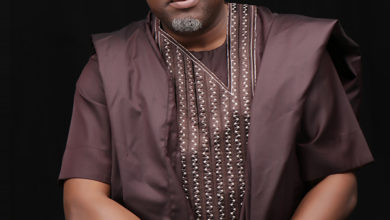
BEYOND REBASING – THE NIGERIAN ECONOMY HAS CHANGED
Well, the world economy has changed in remarkable manner. The aftermath of Covid-19 marked a radical shift to the dominance of the digital economy especially. In that era, the uber-rich grew even indeterminably richer while more poverty was manufactured around the world – especially in areas where modern, western education is rife and the idea of a digital economy, powered by the ubiquitous internet, is still a distant contemplation. Those are the people – mostly in the global south – who carried the can, even as the top digital entrepreneurs tripled their fortunes in less than 3 years of global despair and its aftermath. If the pandemic had lasted a little while longer, and the lockdowns hadn’t been resisted strongly in some quarters, it would have become easier for the very well-to-do in every distant country to order their daily groceries from Tesco, Marks & Spencer, Target and Walmart, than to buy from their struggling nearby cornershops. In fact, the small mom and pop shops would have wholly disappeared.
Artificial Intelligence gained more currency in that era, at the turn of this decade, and has only now taken on a life of its own, revealing new daily capabilities which strike fear into the hearts of many human beings. As millions continue to learn around the world, huge socioeconomic schisms are appearing. Many jobs will go – inevitably. For now, most bosses really no longer need to get someone else to draft their speeches. Presentations are so easy to do in very little time. Proposals, business plans, even bid documents are much more easier for AI to put together. Businesses really no longer need human beings to respond on their behalf as a chat bot often does a much better job. Like the job of typists disappeared about 30 years ago, something even more profound is afoot.
So, the global economy has changed, and the symptoms are more concentration of production in the hands of fewer large conglomerates. Small businesses are being squeezed out. The Chinese bested everyone else in terms of production capacity, causing Donald Trump to panic. He’s now seeking to bring back some industries and some jobs to the US, with marginal success thus far. Other top countries are trying to create formidable economic unions – like the BRICS – to whittle down the American influence. Europe seems a bit lost – with very little in terms of response to the innovative behemoths coming out of China and the USA, especially in the digital, innovative space. Africa is scrambling to see what it can make of its own trade agreement – the AfCFTA – in a new world where there are no assurances anywhere, and where everyone seems to be on their own.
Nigeria’s economy is also changing. And we must take notice. The Nigerian economy is also a living and breathing organism, despite the famous cynicism of her people. The economy will change and is changing in spite of what most Nigerians think about her. We have a dynamic economy, which changes so fast that many times we do not notice its rapidity and tend to take it for granted. In Nigeria – and a number of developing countries especially in Africa – there is good reason to expect an upward trajectory of growth for as far as the eyes can see. Many economies in the developed world have plateaued. But a cursory glance at our economy reveals vast potentials in every space which can be easily harnessed. This is why I am unafraid of high ambitions for the Nigerian economy in terms of growth and sustainable, inclusive development. I believe we should continue to set the bar high, for as they say, those who shoot for the skies sometimes find themselves among the stars.
Now, let us look at some profound changes in the Nigerian economy post-Covid, especially in the last two years since President Bola Ahmed Tinubu took the reins and bravely instituted reforms that are designed to exorcise the country of some gruesome demons that have held us down:
- Petroleum Sector – There are a number of fundamental changes in this sector. The headline changes include the takeover of the assets of some of the global oil companies by local consortia. Seplat is the new Mobil. Renaissance is the new Shell. MRS Oil has taken over most of Chevron’s downstream assets, while OANDO took over Agip. This is good for Nigeria as our people have gained considerable control of our most important resource, proving themselves worthy, turning good profits, creating employment opportunities for Nigerians and consolidating their positions by proving doubters wrong. This is a story that hasn’t been told properly, but I understand that it is better to show results than obsess with the optics. Dozens of Nigerian companies now play solidly in the oil sector, from Elumelu’s Heirs Holdings, to Adenuga’s Conoil, Ogbechie’s Rainoil, Professor Adegbulugbe’s Green Energy and many more, apart from hundreds in the oil servicing space. The great Dangote has basically transformed the downstream subsector, bringing in 4,000 trucks for local distribution from his world-beating refinery. Four remarkable metrics have redefined this sector in recent times:
- a. Nigeria has become a net importer of crude oil from the United States, with Dangote having imported about 10 million barrels monthly from US and a few other countries. A US-based news site noted that this was the first time that is happening since 1973. Role reversal. Nigeria used to export all her crude oil to the USA.
- b. According to a report in the 4th June 2025 edition of The Punch, Nigerian indigenous producers now account for more than 50% of Nigeria’s crude oil production. Wow! The companies are mentioned above. This is another great reversal from the time when that sector was totally dominated by foreign companies, with NNPC, our local behemoth, not pulling its weight per se.
- c. Nigeria is flipping the script in terms of import and export. 2024 Import and Export numbers according to Trading Economics show that Nigeria’s import of petroleum gas and related products dropped from about $21 Billion in 2023 to $10 Billion in 2024. On the export side, because Nigeria has to now feed local refineries, our export of crude oil fell marginally from $59 Billion in 2023 to $46 Billion in 2024. Both numbers – import and export of crude oil – are projected to tend towards zero, as Nigeria fully feeds local refineries with all her production once short and mid term agreements have been vitiated with counterparties, and as Nigeria’s local refineries produce first for the local economy while exporting the rest.
- d. Nigeria has also become an exporter of refined fuel, with Dangote supplying Jet fuel to the USA, Saudi and some South American nations. This is only the beginning. May I add that Nigeria is now determining more accurately the quantum of local consumption of petrol fuel, from the 90 million claim of June 2019 which I still remember very well, to 33 million standard over the past few months. Nigeria is finally extricating herself from mind-boggling fraud and the extirpation of precious monetary resources by a few carpetbaggers. Again, kudos to Mr President. It is only a matter of months before Nigerians start seeing a positive change in their fortunes for good. Already, many Nigerians are seeing this even though they may decide to hush their good fortunes. People who play in sectors where they can adjust prices in line with inflation and maintain patronage are indeed smiling to the bank, literally. The economy has changed.
- There is also the intervention of financial technology, otherwise known as FINTECH. I watched a remarkable documentary the other day, that was shot by Moniepoint – one of Nigeria’s fintech successes. It was basically about how their very lithe technology is enabling farmers and traders to easily receive payments in the remotest parts of Nigeria, and to avoid the risk of lumbering cash. The setting of the documentary was in Maiduguri and environs. The traders and farmers have been able to avoid the hassle of dealing with traditional banks – which they said intimidated them in the first place. What makes this remarkable is that money velocity is increased in the country as a result of this development. As I keep saying, we must note that after pain comes ease. Even the very adventurous change of currency by the former Governor of the CBN is part of what accelerated the adoption of alternative electronic sources and gave impetus to the likes of Moniepoint. Subsequent initiatives, including from the PreCEFI – Presidential Committee on Economic and Financial Inclusion in the Office of the Vice President Kashim Shettima, has further consolidated on this growth area for the country. This has had considerable effect on the eradication of poverty in places where people are not on social media. We would not have seen the impact if Moniepoint hadn’t done this documentary. This is why I implore young Nigerians not to be carried away by the doomscrolling and doomsbaiting that goes on on Social Media platform. There is a new Nigeria emerging which is not part of most content creation.
- But even the digital space has transformed. Spotify released a statement recently that it paid Nigerian content creators (musicians) N58 Billion in the year 2024 alone. This area is one of those captured in the new rebasing exercise of the National Bureau for Statistics (including Modular Refineries, NSITF, NHIA, some informal sector, domestic household employment, quarrying etc). Spotify is only one out of over 20 websites that hosts Nigerian music and pays royalty to our people. There are others, like Apple Music, Amazon Music, Tidal, YouTube Music and the rest. Talking about YouTube, it released information in the middle of last year that it paid content creators over $500 Million in 2023. Nigerians play hard on YouTube, as the website stated that the number doubled in 2024 even though no numbers have been released, yet. Twitter paid $42 Million to content creators in 2024. As I was development this article, I ran into a tweet by one of Nigeria’s content creators, that Twitter/X had just paid them N742,000 for the month of June 2025. The possibilities in the digital space are endless. A tax law has just been passed trying to get Nigerians in the ‘gig economy’, who work remotely and so on, to at least pay some taxes to government. For now, not only is everyone riding free, but capturing their contribution to the GDP remains a problem.
- The relative weakness of the Naira is turning out to be some advantage especially in the export sector. Perhaps the quantum of Naira that exporters especially of non-oil products can get for sending their goods abroad is a great encouragement. This is one sector that is booming in Nigeria today. Exporters of cocoa for example got thrice the sum in 2024 ($2.6 billion), from their 2023 position ($800 million). Local farmers from Ondo, Ekiti to Cross River State have been silently repositioned away from hunger. Another harvest season is coming as the rains clear up. And this year may be better than the last because of some challenges in some of our competitor countries – Ghana and Cote D’Ivoire. Nigeria’s cocoa production rose from 280,000 in 2023, to 340,000 in 2024. Projections are that we may close 400,000 this year and improve in ranking to say number 3 around the world. Despite the challenges of terrorism which militates against our farmers, they have shown great resilience. Nigeria expects another bumper harvest this year not only with the food crops, but with cash crops like Cashew nuts, Sesame, Soybean, Maize, Cassava, Rice, Wheat and so on. With the strategic plans of the Ministry of Agriculture, as well as Mr. President’s encouragement of mechanised farming, this sector has become very attractive to investors and Nigeria is turning the corner.
- What about our industrial/manufacturing sector? Yes, there is another renaissance going on there. I just put down an article that captured how Okomu Oil declared a 459% increase in profits for the quarter ended June 30, 2025. Manufacturing profits seems to be improving across the board. A report in the Vanguard newspaper of May 25, 2025 documents that major fast-moving consumer goods (FMCG) companies have seen a recovery in their fortunes as profits rose 59% on the average. These include Cadbury Plc, Nigeria Breweries Plc, Nestle Plc, Bua Foods, Dangote Sugar, and Unilever Plc, among others. Factors attributed to the recoveries include stability in foreign exchange rates, exploitation of backward and forward linkages and economies of scale, diversification, reduced inflationary pressures, and favourable government policies. Again, after rain comes the sun. The stoicism of President Tinubu that the key reform policies must be carried through may have been initially unpopular but are yielding tangible results already. Now is time for us to communicate these successes to Nigerians. The policies of government has made local production more attractive. Nigerians are buying local, not only with conglomerates, but with millions of small players, SMEs which are meeting the needs of our people. There seems to be a a great renaissance in local fashion too, as well as the local food industries, which are churning out millionaires and billionaires on the daily. Many Nigerians are making fortunes selling many things on digital platforms and silently cashing out. The game has changed indeed!
- Real Estate is also a soaring new sector in Nigeria, not because house prices and rents are rising – which means that investors are doing well in that sector – but principally because per the rebased GDP, the real estate sector has shown great resilience by displacing oil and gas as the second largest contributor to the national output. These is something deeply cultural about Nigeria’s real estate sector. Every Nigeria wants to own a house. It is seen as a great mark of achievement. And most Nigerians want more than one house. Nigerians in diaspora are among the largest investors in commercial real estate too. So, it’s not a big wonder that that sector has stood up to be counted. Perhaps moral suasion can be deployed to prevail on landlords from increasing rents too far. And also, new initiatives like the Renewed Hope Housing Projects that are coming up all over the nation will reduce the price of houses at some point by giving access to real estate to new entrants. But, hey, this is another sector that tells the right story about our economic recovery. It also is an indicator of a thriving economy to the world.
- Nigerian Stock Exchange – The Nigeria All Share Index’s performance has been stratospheric this year, posting over 30% gains already, in what pundits say is a marker of great confidence in the economy. As at May 29, 2023, the Nigeria ASI was a mere 55,600 points, but this has increased to 132,000 points today! This is simply amazing. And the numbers are climbing. The real meat is that the market capitalisation, which measures the quantum of money invested in that market has increased from N28 Trillion to over N75 Trillion. This is a metric that cannot be ignored and that shows great hope for Nigeria. The future is bright indeed!
I think the rebased GDP of N372 Trillion is rather very conservative. And it is good to be conservative. I would have wagered that the national output (in naira), after capturing the many new sectors and incorporating some aspects of the informal sector, is much larger. Moreso if we consider the many tectonic changes in this dynamic economy as captured above. Developing economies naturally grow faster – as toddlers grow faster than matured adults. Pondering about the fact that Nigeria merely retained her 4th position in Africa, I decided to research Algeria a little. What does Algeria have that we don’t? Yes, a larger landmass – mostly desert land. Some bit of sophistication in the capital, Algiers, because most northern African nations are advancing fast as a result of closeness to Europe. But that was where it ended. Algeria certainly does not have the dynamism, the drive, the potentials, the economic grit, the socioeconomic vivacity, that Nigeria has. And this is not a diplomatic put-down please. It is simply an economic comparison. For starters, Algeria has only two cities with population higher than a million – Algiers (3 million), and Oran (1 million). The rest are in the hundreds of thousands. Except those small cities are centres of innovation manufacturing high technology, there is no way they can mirror Nigeria’s large cities like Lagos (20 million plus), Kano (20 million), Ibadan (at least 10 million), Port Hacourt, Kaduna, Abuja and the rest. Let us stand back to appreciate what we have. Nigeria is great – with ability and prospects to be even greater. I look to the near future for the Nigerian economy to grow even faster. And I want us all to know, that beyond the rebasing, every constituent part of this economy must appreciate the power of data, interact more closely with our bureau for statistics, and let us make adjustments every month to capture the economy better, not to wait for another 5 or 10 years’ rebasing effort. We have to understand that everything now hinges on data. All our dreams for this country will be data-driven.


